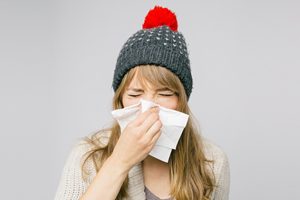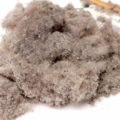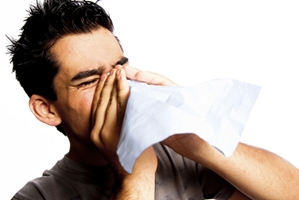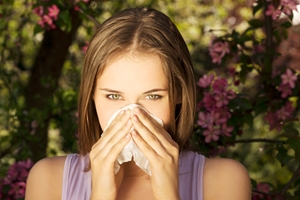
How has allergy season treated you this year? For many, the answer is "not well." This year has been particularly tough on allergy sufferers because the late winter extended pollen season well into the summer, and the dry air made symptoms worse. For those who were hoping to feel relief during the fall, they were unfortunately mistaken because that's when ragweed and mold season begins.
According to Dr. Purvi Parikh of Allergy and Asthma Associates of New York, mold season is particularly bad this year. She's seen 20 to 30 percent more patients make appointments to address mold allergies.
"A lot more people are coming into my office with symptoms like sneezing, coughing, and rashes," said Parikh. "Some people are very sensitive to mold."
She blames it on the unusually warm spell the Northeast is facing.
"Climate change in general has been making the environment more allergic," said Parikh. "The warm weather also makes the pollen season longer. If you already have a mold allergy or a dust mite allergy, the pollen season is now extended, causing those allergies to overlap."
Parikh goes on to say that for those suffering from mold allergies, there are plenty of ways to manage symptoms.
"For indoor mold issues, effective air purifiers like HEPA can help remove mold spores from the air," said Parikh. "If your allergies get really bad, there are appropriate medications people can take to alleviate the symptoms."
For more information on proper allergy management techniques and allergy control products, visit Allergy Be Gone today.









